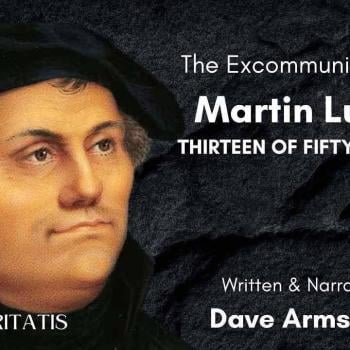With the first Republican primary presidential debate behind us, whom should evangelical voters support? Many American Christians, and some evangelicals, will support President Obama in 2012. Yet evangelicals remain the core constituency of the Republican Party, and many are starting to evaluate the candidates.
They should be looking for someone with at least three qualities: 1) competence in governing, with the more successful experience the better; 2) a sincere commitment to key moral and political ideals, such as the value of human life and liberty; and 3) public composure and the ability to project leadership to all Americans.
The first quality, competence, may seem too obvious to mention, but in their desire for a values-oriented, conservative Christian as President, evangelicals may sometimes forget about this issue. Job performance is one of the core problems with Barack Obama's presidency: on our biggest domestic challenges, including health care, entitlement reform, and the economy, he's simply not doing a good job. (If he handled the domestic front as well as he handled the termination of Osama Bin Laden, he would be performing very well!) We don't want to elect an ideologically pure but executively inept Republican as a replacement for President Obama.
Executive experience does not guarantee success (see Jimmy Carter), but all things being equal, it is better to choose someone with successful decision-making credentials. In the current Republican field, Mitt Romney, Jon Huntsman, and Tim Pawlenty are the standouts on this score, although some question how successful their respective governorships actually were.
The second quality is more familiar to evangelicals: the right political and moral ideals. There are many one could discuss, but the pro-life issue is at the top of the list. Mitt Romney's waffling on abortion—and his telling refusal to sign the Susan B. Anthony List's pro-life pledge—are nearly fatal flaws. (Huntsman has likewise refused to sign, leaving Tim Pawlenty as the only one of the three former governors to have signed the pledge.) Romney's conversion to pro-life principles seems opportunist; a pro-choice candidate has almost no chance of getting through the Republican primaries.
As important as the abortion issue is, there are other critical values that get less attention. To his credit, in the recent debate Romney did better than anyone at defending a principle that should be dear to evangelicals' hearts: religious liberty. As Newt Gingrich and Herman Cain demagogically stoked fears about the ostensible Muslim menace in America, comparing Muslims to Nazis (Gingrich) and suggesting that Muslims in his administration would need to take a loyalty oath (Cain), Romney courageously said that he would protect the liberty of people of all faiths.
The third quality is public composure and broad leadership appeal, which may be the most controversial point because of the Tea Party's role in the election. Candidates who are the most provocative and ideologically pristine get the most attention. This applies most obviously to Sarah Palin, a non-candidate thus far. But a strong leader needs more than an ability to rile up the base and bash the "lamestream" media. Successful presidents—indeed, influential leaders in general—are able to work with rivals. They think before they speak, they admit when they're wrong, and they don't allow their egos to prevent collaboration and compromise.
Similarly, U.S. Representative Michele Bachmann is an appealing candidate with significant experience at multiple levels of government, and the most likely in the early campaign to serve as the insurgent choice against the frontrunner Romney. But I seriously doubt whether she could sufficiently appeal beyond Tea Party constituencies to win a matchup against Obama. She will constantly be dogged (it came up again this weekend on Fox News Sunday) by reckless comments she has made and defended about President Obama's "anti-American" views and his "gangster government." She is surely the one, among the serious Republican contenders, against whom the Obama campaign would most like to run.
Evangelicals don't need a political messiah. They may well support someone who does not have the exact same faith as they do. If otherwise qualified, Mormons such as Mitt Romney and Jon Huntsman should not be ruled out. A person's religious beliefs are certainly important in politics, but choosing a president is not fundamentally about doctrine.
Whom should evangelicals support? I'll leave that for readers to decide, but there's more to the choice than picking someone who shares your values. It's about the person with the best qualities and vision for presidential leadership.
6/28/2011 4:00:00 AM





